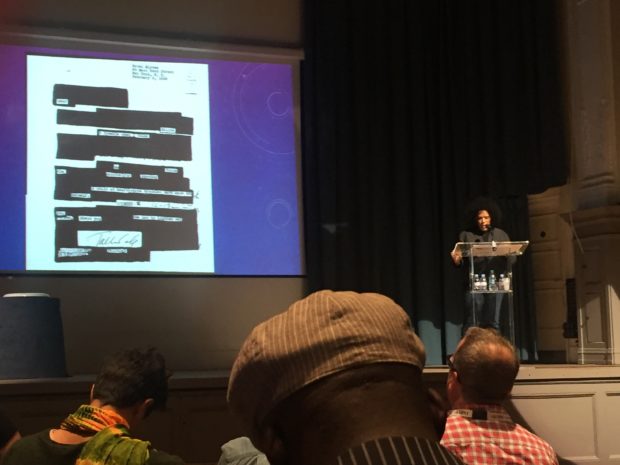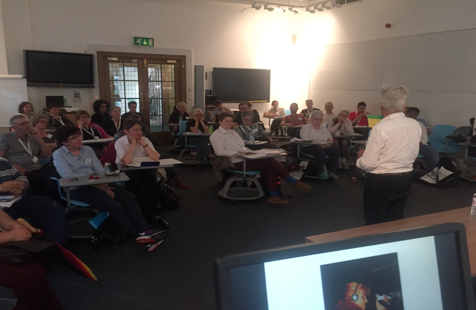Back in June, myself and Sandi attended ‘Without Borders‘ – This being the international Archives, Libraries, Museums and Special Collections (ALMS) LGBTQ+ heritage conference. Taking place for the first time in London, the conference aimed to generate dialogue between individuals, groups and organisations interested in documenting and sharing LGBTQ+ cultures and histories. We submitted a pitch to present our project ‘Rewind Fast Forward’.
We arrived in London on the evening of 21st June to attend the opening night reception which was really useful in getting a grip to all that was going on as well as meeting some of the people due to give some of those i nteresting presentations taking place over the three days. This was really useful time, and on reflection, perhaps a bit more social time planned into the conference would have been beneficial. It was a packed schedule, (which was great), but some specific time to reflect and discuss, make contacts, share good practice, would have been useful.
nteresting presentations taking place over the three days. This was really useful time, and on reflection, perhaps a bit more social time planned into the conference would have been beneficial. It was a packed schedule, (which was great), but some specific time to reflect and discuss, make contacts, share good practice, would have been useful.
We were totally inspired – some of the talks, such as Matt Cook’s ‘Queer Pasts in the LGBT Present’, had particular relevance for our project. Bird la Bird’s performance on the Queer Portrait of a Workhouse was a wonderful mixture of performance and history presentation.
Rommi Smith showed some beautiful poetry created ‘ghost documents’ from letters that Tallulah Bankhead had written in support of Billy Holiday, suggesting that ‘artists interactions don’t take from the archive, they contribute to it, literally transforming the archive into an artwork’. This was particularly potent to when we are trying to archive with Rewind Fast Forward.
Shawn(ta) Smith-Cruz also delivered a memorable talk on her practice documenting black lesbians of new York city, highlighting the importance of our role in ensuring people aren’t silencing themselves and that if fear wins, the archive is erased.
people aren’t silencing themselves and that if fear wins, the archive is erased.
There was a good turn out for our presentation and people were genuinely interested in our project, particularly Sandi’s style of delivery. There was helpful and supportive feedback from the audience, including suggestions to our problems with accessible on-line storage for video work.
All in all, it was a fantastic and really informative event to be part of, and particularly useful to us for our research. One of the key things that made Sandi start documenting her community was that she realised that she wasn’t seeing her friends or her community on mainstream media and this unbalanced representation was the reason she became a filmmaker.
We were aware of the responsibility to the community as we launched the project and started the digitisation process. Questions have arisen about what should be shared and what should remain private, questions our colleagues at the conference have also faced and certainly we now feel more confident in moving forward, developing a model of good practice that might also help others in the future.